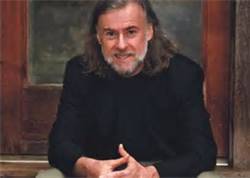
First,
let me say that I want to read more of Mark Edmundson's writing. While
I will quibble with some of his assertions, I mostly found myself
cheering along. While reading “Who Are You and What Are You Doing
Here?” one appreciates Mark Edmundson’s willingness to share—well, not
his experiences in higher education, really, but the conclusions he’s
drawn from those experiences. For the most part, his conclusions align with my own experiences, as well. There
are places where I think he overstates things a bit, but these may
simply be the differing experiences we’ve accumulated—Edmundson as a
high-profile professor at one of the nation’s most prestigious universities, and me at a Christian liberal arts college on the northern
plains. For example, he asserts:
The work they [faculty] are compelled to do to advance—get tenure, promotion, raises, outside offers—is, broadly speaking, scholarly work. No matter what anyone says, this work has precious little to do with the fundamentals of teaching. (91)
There is truth in this, particularly for academics in the “big leagues,” I suspect. However,
my own experience is that the research and scholarly work required or
encouraged feeds the teaching, and the teaching generally sparks the
possibilities for research. Much of Edmundson’s essay
admonishes the undergraduate student to understand that whether he or
she gets an education is largely up to the individual student. I think the same is true of the role research and scholarly work plays for faculty. If a faculty member prioritizes teaching, then the research will be more likely to be relevant. If
the faculty member sees teaching and research as two distinct concerns,
then then, yes, it’s easiest for the faculty member to prioritize the
concern that is recognized and privileged by the institution.
While I could nit-pick the particulars of Edmundson’s essay, I think the foundations of it are pretty accurate. At
the center of his assertions is a distinction between
schooling/credentialing and education: “Education has one salient enemy
in present-day America, and that enemy is education—university education
in particular. To almost everyone, university education is a means to and end” (91). And,
as a result of this, “The students and professors have made a deal:
neither of them has to throw himself heart and soul into what happens in
the classroom” (92). Edmundson has a pretty compelling take on the reasons for this unwillingness to engage in really meaningful, personal ways. There
are legal issues; there are market-based factors; there are political
demands that diminish our collective understanding and ideal for
education to percentiles on standardized tests.
The
irony, however, is that much of the reason for the lack of
engagement—and all the factors that contribute to that lack—might also
be the Emersonian self-reliance that Edmundson touts as an ideal. It
is a version of this self-reliance that generates our litigiousness and
the lingering concern with legal issues, that leads universities and
colleges to appeal to individual students as consumers, that leads us to
prioritize “objective” forms of assessment (e.g., standardized tests). In
order to throw ourselves “heart and soul into what happens in the
classroom” (92), in order to explore questions about whether “the books
contain truths you could live your lives by” (99), we all have to be
willing to enter into a meaningful level of community that enables and
allows us to share our lives with one another. We have to
be willing to be subject to one another, to forgive perceived slights,
to entertain alternative (and sometimes ignorant or distasteful)
perspectives. This sort of community is messy, sometimes
dangerous, and certainly at odds with both the size and the
market-driven motivations of the contemporary university or college.
So,
yes, Edmundson is right to tell today’s students that receiving an
education, rather than merely a degree, will be their responsibility. However, receiving the type of education that Edmundson nobly envisions will require community. The challenge for students is not simply one of asserting their own identity and relying on themselves. The
challenge is finding, perhaps creating, and caring for pockets of
community within the institution, because the size and shape of
contemporary education doesn’t lend itself well to forming such
communities.

3 comments:
I'm curious; you say that teaching sparks the possibilities for research (I do agree this is absolutely true), but what type of research does it initiate. Do you choose the research based on personal interest or on the possibility for scholarly recognition? or both? Also,is it the material taught that initiates the research or student response?
I too was cheering along with his assertions in this essay. He brought up some significant points that I can relate to and have also contemplated myself.
Justin: I suspect the answers to your questions will be a little different for each professor and within separate disciplines. For me, teaching usually sparks questions that are personally relevant, either just because of my own idiosyncratic interests, or because of issues that surface as students engage with texts, etc. For me, if the research becomes scholarly relevant, that's icing on the cake.
gad
That is well said. It's probably best to let the questions unfold that way and in conjunction with personal relevance, that way when the proverbial icing on the cake does emerge, it is ten times better.
Post a Comment